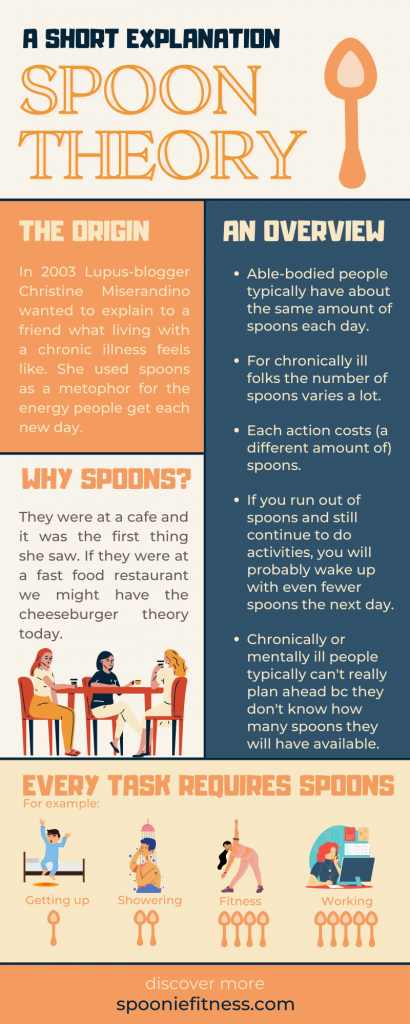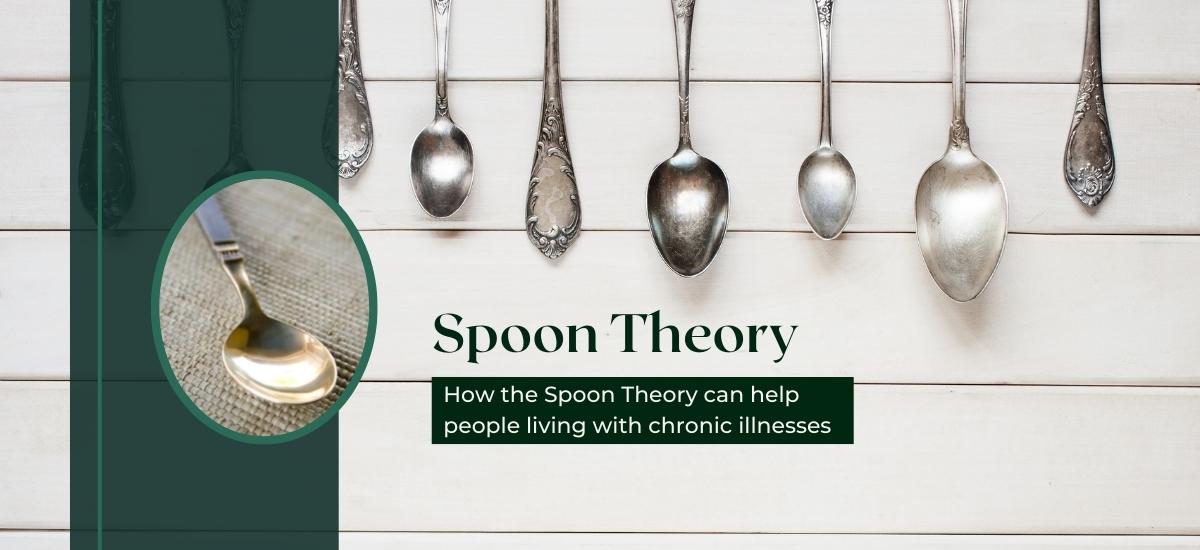Let’s be real: Chronic illnesses are often unpredictable and overwhelming. You may be struggling to balance work, relationships, and hobbies while you are ill. You may have heard someone use the term “Spoonie” or “Spoon Theory.” People with long-term illnesses use this theory to explain how they manage their time. It can help you understand your condition and your daily struggles better.
So, what exactly is "The Spoon Theory"?
In her now-famous “Spoon Theory”, Lupus-fighter Christine Miserandino explains what living with a chronic illness feels like. It means always having to ration out your energy. Every activity – from brushing your teeth to taking a shower–requires effort. And that takes away from the limited spoons you have for the day. For people with chronic illnesses, the Spoon Theory is a way of understanding what life is like. Even the smallest tasks use up energy:
- getting up
- taking a shower
- putting on some clothes
- going grocery shopping
- etc.
Some tasks need more spoons than others. And once you’ve used up all your spoons, it can lower the number of spoons you have available in the next few days. As a healthy person, your energy is usually not limited like that. People with chronic illnesses and disabilities nowadays oftentimes refer to themselves as “spoonies”. This theory shows how demanding living with a chronic illness can be. Often, spoonies don’t have the resources to be as productive as their healthy coworkers or family members. Or they may not be able to work a “normal” job at all.
Who does this apply to?
The inventor Christine Miserandino is a Lupus-fighter. So, the Spoon Theory was first invented for people with chronic illnesses. Nowadays, all sorts of people who have trouble managing their daily energy use it. For example:
- Neurodivergent people (ADHD, autism, etc.)
- People with mental illnesses (depression, BPD, anxiety, etc.)
- People with different chronic conditions (CFS, fibromyalgia, rheumatoid arthritis, chronic pain, etc.)
- …And many more can use the Spoon Theory to better understand their limitations
How can the Spoon Theory help people living with chronic illnesses?
It can help others understand why we may sometimes need to cancel plans or why we’re always exhausted. It’s also a reminder that even though our illness might make life more difficult, we’re still fighting every day.
How can you apply the spoon theory in your own life?
If you read this far, you’re either a Spoonie yourself or you know someone who is a Spoonie. If you’re a spoonie yourself, you can use the spoon theory to manage your daily energy. It may take a little bit of time to get used to this. Here’s how I do it: I usually wake up and try to estimate how many spoons I have for the day. This is purely based on how I feel and there is probably not a right answer. Whenever I have very few spoons, I’ll plan my day with low-impact activities. Sometimes I spontaneously decide to work from home because that takes up less energy. Of course, not everyone has this possibility. If going to work and being physically present is mandatory, you should fill the rest of your day with activities that help you regain spoons. Or at least not use up that many spoons.
Best low-spoon activities for a relaxing day
- Going for dinner with friends
- Taking a nap
- Staying in and watching a show/reading a book/ writing something/creating something
- Facetiming with friends and family
- Going for a slow evening walk or doing some slow yoga flows
- Taking a bath or doing some self-care
- Cooking my comfort-food
Remember, there is no shame in not doing something "productive" 24/7. Sometimes, the most productive thing for spoonies to do is to rest.
If you’re someone who tries to understand spoonies better, here’s what you can do:
- Don’t pressure your spoonie friend to go out when they’re not feeling like it. Even if they cancel plans on short notice, it’s probably because they ran out of spoons.
- Understand that Spoonies may not be able to plan far ahead. That is because the number of spoons available can change drastically even in a short period.
- Help them with energy-consuming things. For example, you could offer to drive, come over and stay in with them instead of going out, etc.
Spoon Theory Infographic

Do you want to read about this in more detail? You can have a look at the complete definition of the term “spoon theory” here.










